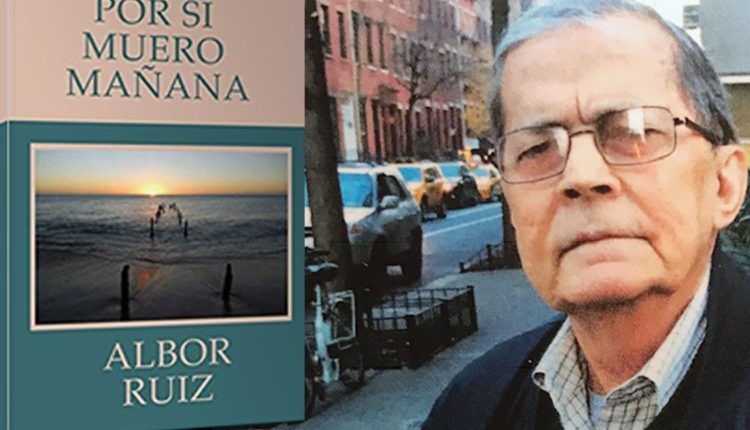 Journalist and poet Albor Ruiz. Photo: Courtesy of Albor Ruiz
Journalist and poet Albor Ruiz. Photo: Courtesy of Albor Ruiz
A Cuban poet in New York
José Martí was the 19th century’s first, and, if I’m not mistaken, Federico García Lorca followed in the 20th century.
There will thus be hundreds of anonymous men of letters, pilgrims of the Earth, in penitent travel to the great “Byzantium of the West,” who arrived at this great crossroads of civilizations of the world, in the center of Times Square.
Attracted by the luster of the name – “The City of New York, in the borough of Manhattan”– and perhaps by their unintended, obscure desire to travel to this distant place to lick their wounds alone, to savor their troubles slowly – far from their impossible loves, or the disappointments of their early years.
Or, they are simply launched into the romantic adventures of leaving behind their mediocre realities, believing instead in the knightly deeds of fiction books, and begin the march towards the battles yet to be fought.
New York has seen them arrive, to their land, and it has seen them leave – most of them.
Returning, to die much faster in the firing squads of the Spanish Civil War, like Lorca; or to the battlefields of Cuba, as was Martí’s choice.
There have been other poets, born in Cuba and bred in the U.S. They entrenched themselves here; they were almost unknown loners who, with the power of their words survived the fierce winters on the streets of Manhattan, and the suffocating summers inside tiny, poorly ventilated apartments in the Bronx.
Sad birds of the tropics who lowered their wings here, and who have accompanied us for many years – for so long that their friends have forgotten them, and almost nobody remembers that they are still here, patient and worthy, in the cage of this great city, still alive and flapping.
Surely they will remember them only when they finally receive the news that they hung up their beaks, putting down their pens.
Albor Ruiz, the intelligent eagle that he is, decided to take revenge in advance of all, gathering those loose pages, written by him over the years, almost like a secret memoir, which he wrote undoubtedly for his own joy, or perhaps to show to his most trusted friends.
He ultimately decided to assemble a book of poems, one he kept in a drawer in his New York apartment, and which he has made public under the solid and incisive title: “In case I die tomorrow.”
“Ruminations,” “Absences,” and moments of “Existing” are the three chapters of this poetry book, just 62 pages long, which allow this New York journalist to take a break from his constant firing from his invincible journalistic trench — the same trench for which he was hired as a precise sniper, and star columnist, by the New York Daily News, where he became the first Latino writer on its editorial board.
Nowadays, Albor writes for AL DÍA. He is still glued to the trigger of unwavering convictions, those that his detractors judge as the mere delirious opinions of a 78-year-old.
Those who dare to read their poetry, however, will realize that the delirium is real.
It is all a gentle source of poetry – he is a “jíbaro” with no remedy, definitely not authorized by the Royal Academy of the Language in Madrid. He is free, as free as the risqué English of New York, but tender; this is a man who had the courage to write it in his native language, but with Castilian caresses, not with the sharpness of his journalistic opinions in the English language.
He is a native of Cárdenas, east of Varadero, on the island of Cuba, the place where he aspires to rest, as he warns in the final verse of his collection of poems, “Por si muero mañana …”:
“Everyone should know that Cuba claims me…”
To purchase the book (in Spanish), click here.
(From Al Dia News)

